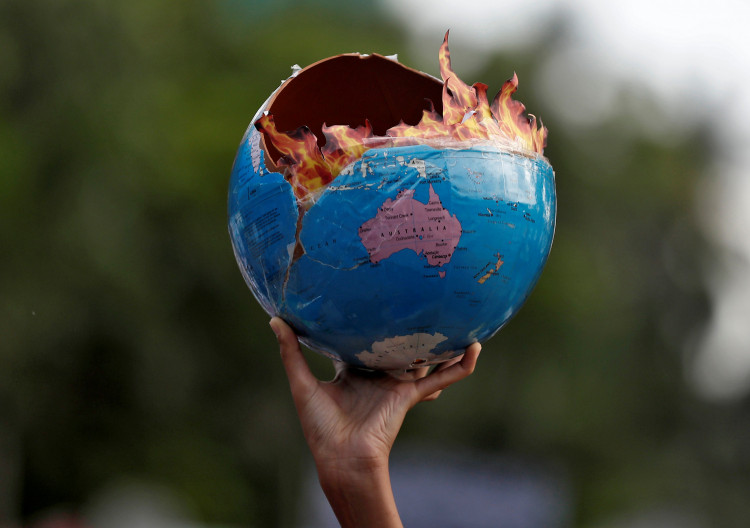An increasingly thawing Siberia has led to new methane emissions from the permafrost, new research shows.
The release of methane into the atmosphere is linked to the thawing of the Siberian permafrost. Permafrost thawing has increased as a result of global warming.
Methane is a powerful greenhouse gas, with a warming capacity of 84 to 86 times that of carbon dioxide during a 20-year period.
Significant amounts of methane are being emitted from a previously unknown source, according to a study published Monday in the journal Proceedings of the National Academy of Sciences.
After the heatwave, which peaked at 6 degrees Celsius above normal, satellite data revealed that fossil methane gas spilled from rock formations thought to represent major hydrocarbon stores. Previous leaks have been observed in frozen soil or in shallow waters.
As the climate crisis grows, lead author Nikolaus Froitzheim, a professor at the University of Bonn's Institute of Geosciences in Germany, said that comprehending the conclusions of this study "may make the difference between catastrophe and apocalypse."
Most experts believe the risk of a "methane bomb" - a massive release of methane that causes cataclysmic global warming - is low in the coming years. Over the previous 130,000 years, there has been a minimal indication of considerably increased methane emissions from the Arctic, and no sign of such a bomb in periods that were even hotter than today.
Large methane leaks are still a possibility in the long run if the climate problem worsens and temperatures continue to climb, according to experts, and must be better understood.
The scientists discovered that "atmospheric methane concentrations have increased considerably during and after the 2020 heatwave" by comparing maps across a one-year period between May 2020 and May 2021.
Methane levels were highest in June/August 2020 and March/April 2021, indicating how warming can induce methane release even after a heatwave has passed.
The study looked at the Taymyr Peninsula and its surroundings in northern Siberia, which were hit by the world's most severe heatwave in 2020.
According to the scientists, these findings do not necessarily imply that the permafrost is irreparable.
We must immediately begin lowering greenhouse gas emissions from fossil fuels and other industries if we are to have any chance of stopping the leak of methane from the permafrost, the authors conclude.






